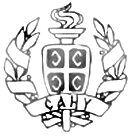Приказ основних података о документу
Прасл. *mǫžь
Common Slavic mǫžь ‘man’
| dc.creator | Лома, Александар | |
| dc.date.accessioned | 2019-11-27T14:58:12Z | |
| dc.date.available | 2019-11-27T14:58:12Z | |
| dc.date.issued | 2006 | |
| dc.identifier.issn | 978-80-7106-209-7 | |
| dc.identifier.uri | https://dais.sanu.ac.rs/123456789/6693 | |
| dc.description.abstract | In the Etymological Dictionary of Slavic Languages (ESSJa 19: 24f.)O.N. Trubaéev reconstructs a Common Slavic root *mez- underlying Pol. miqzszy, Sloven. mjoyssi ‘thick, tight’, Ukr. mjaznuti intr. ‘thicken’ as related to OInd. Vedic mamhate tr. ‘to present, to offer’, intr. ‘to be ready (to offer)’, superlative mamhistha- ‘granting most abundantly, very liberal or generous; exceedingly abundant; quite ready for (dat.)’ (actually, there is, in Vedic, a comparative mamhiyas- too, precisely matching Slavic *meZbSbjb). We go a step further in supposing PIE *meng(h)- to be a reduplicated verbal stem of the adjective *megH.- ‘big’, and, consequently, the Slavic words cited above to go back to a primary verb *mezti, meze ‘to grow’ < PIE *me-mgH,-. The original meaning of OInd. mamhate would have been *‘to be grown up, 1.e. equal to something’, cf. also Avest. mqza.rayi- ‘offering by wealth’, or, rather, ‘augmenting the wealth’, and, for the semantic development of the same PIE root, lat. mactare ‘to offer’ < *‘to increase the deity by the offerings’. In this connection, OlInd. mahayati ‘exalts’ appears to be a causative to the primary verb cited above rather than a denominative derived from the adjective mah/(i)- ‘big’, as it is usually explained. A dissimilated form of the reduplicated stem *mV-mVgH,- may underlie SI. *monogs, Goth. manags ‘suf- ficient, large, many’, Olr. menic(c) ‘tight’, with a centum-reflex in Slavic, comparable to gord> besides zord», etc. Moreover, the word *mgzZb ‘man’, without a plausible etymology (the traditional derivation from PIE *manu- ‘man’ being structurally more than doubtful), may be explained as originally *‘a grownup man’, a postverbal o-grade derivative in -io from *mezti, comparable to *vod’s ‘guide; leader’ from vesti < *ved-ti; cf. Scythian (with 6 = SI. z < PIE *g) *mano(y)a- ‘male (of horses)’, presumedly re- flected in Scyth. PN Mavéacoc = * Manda-asa- ‘owner of male horses, stallions’, and, as a loanword, in Celt. *mandos > Lat. mannus ‘Gallic breed of small horses’, V Lat. *mandius > Rum. minz ‘foal’, It. manzo, Alb. méz. | en |
| dc.language.iso | sr | sr |
| dc.publisher | Praha: Nakladatelství Lidové noviny | sr |
| dc.rights | openAccess | sr |
| dc.rights.uri | https://creativecommons.org/licenses/by-nc-nd/4.0/ | |
| dc.source | Studia etymologica Brunensia | sr |
| dc.title | Прасл. *mǫžь | sr |
| dc.title | Common Slavic mǫžь ‘man’ | sr |
| dc.type | article | sr |
| dc.rights.license | BY-NC-ND | sr |
| dcterms.abstract | Loma, Aleksandar; Prasl. *mǫžь; Common Slavic mǫžь ‘man’; | |
| dc.citation.spage | 195 | |
| dc.citation.epage | 199 | |
| dc.citation.volume | 3 | |
| dc.type.version | publishedVersion | sr |
| dc.identifier.fulltext | https://dais.sanu.ac.rs/bitstream/id/26830/loma.moz.2006.pdf | |
| dc.identifier.rcub | https://hdl.handle.net/21.15107/rcub_dais_6693 |

